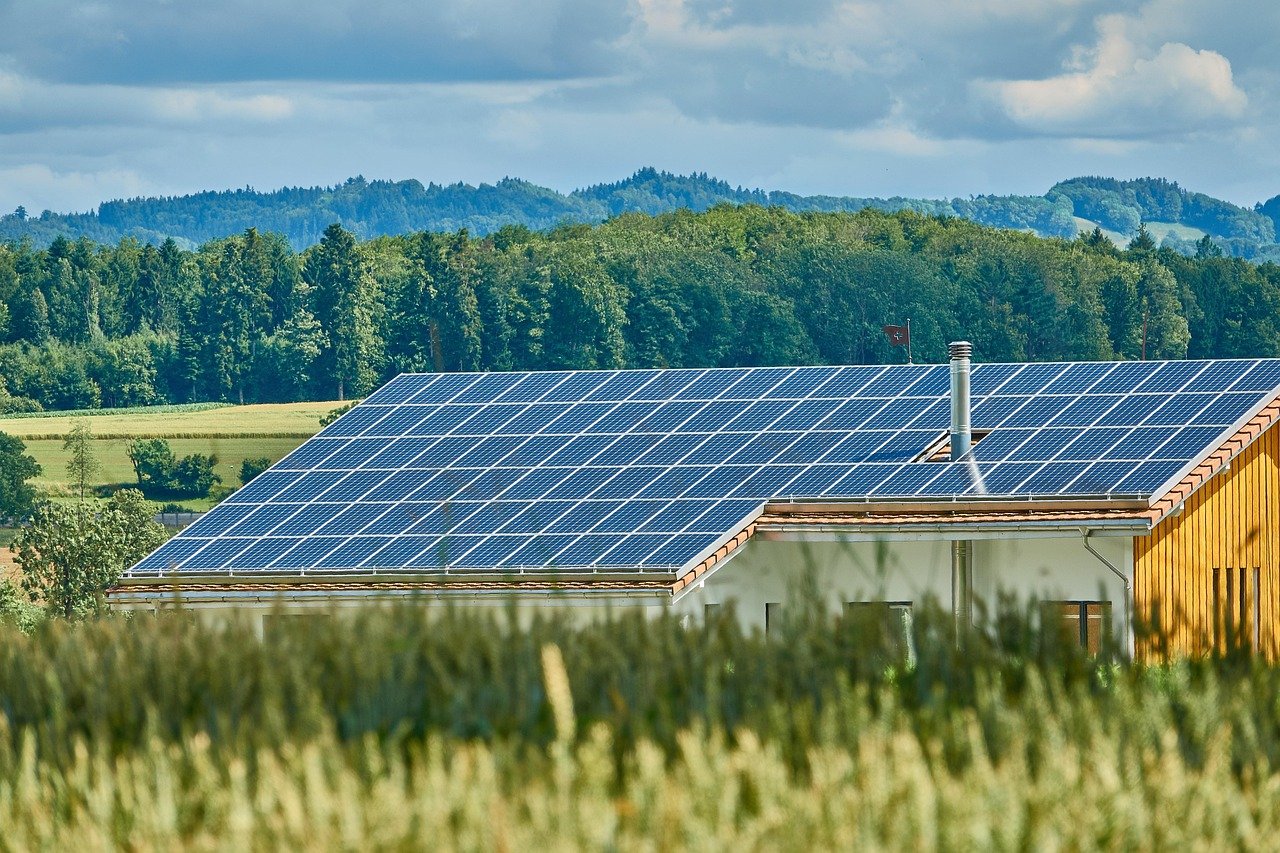Zambia’s growing population, expanding urban centers, and push for industrialization have opened up tremendous opportunities for small-scale manufacturing. If you’re looking to go beyond trading and start producing real, tangible products with local demand and export potential, this guide is for you.
Unlike large factories that require millions in capital, small-scale manufacturing businesses in Zambia can be started with as little as ZMW 5,000 to ZMW 50,000, depending on the scale and niche. With the right equipment, location, and strategy, these businesses can yield solid profit margins and long-term sustainability.
Why Small-Scale Manufacturing Is Viable in Zambia
-
Import substitution: Zambia imports many items it can locally produce.
-
Raw material availability: From maize to timber to clay — Zambia has abundant natural resources.
-
High demand for basic goods: Many everyday essentials are still produced outside the country.
-
Youth unemployment: Manufacturing creates jobs and supports community economies.
-
Government support: Institutions like CEEC and ZDA support manufacturing startups with funding, training, and policy incentives.
Top Small-Scale Manufacturing Business Ideas in Zambia
Here’s a curated list of profitable, locally adaptable, and scalable manufacturing ventures for Zambian entrepreneurs in 2025.
1. Soap and Detergent Production
Soap and Detergent Production is one of the small scale manufacturing business ideas in Zambia:
Startup Capital: ZMW 3,000–10,000
Why It Works:
Soaps, washing powders, and liquid detergents are everyday essentials in homes, hospitals, schools, and hotels.
Products You Can Make:
-
Bar soap
-
Dishwashing liquid
-
Hand wash
-
Bleach
-
Multipurpose floor cleaners
Market: Households, retail shops, lodges, hospitals
Bonus: You can start from home and expand with branding and packaging.
2. Peanut Butter Processing
Startup Capital: ZMW 4,000–8,000
Why It Works:
Groundnuts are widely grown in Zambia, and peanut butter is consumed across urban and rural households.
Requirements:
-
Roaster or pan
-
Peanut butter grinder
-
Jars or containers
-
Basic labeling
Add-Ons: Flavored peanut butter (e.g., with honey or chili)
Tip: Supply to local shops, schools, or sell via WhatsApp and markets.
3. Maize Milling (Hammer Mill)
Startup Capital: ZMW 10,000–25,000
Why It Works:
Nshima is Zambia’s staple food. Every family needs maize flour (mealie meal), and small-scale mills can earn from milling services or retail packaging.
Business Models:
-
Fee-based grinding
-
Sell your own branded mealie meal
-
Provide bran for livestock feed
Best Locations: Rural or peri-urban areas where big mills are absent
4. Chalk and Whiteboard Marker Production
Startup Capital: ZMW 3,000–7,000
Why It Works:
Every school uses chalk or markers, and Zambia has over 10,000 schools.
Raw Materials:
-
Plaster of Paris (for chalk)
-
Pigments and solvent (for markers)
Market: Government schools, private schools, stationery shops
Tip: Bundle with low-cost dusters or boards for schools.
5. Candle Making
Startup Capital: ZMW 2,000–5,000
Why It Works:
Load shedding and inconsistent power supply make candles essential in many areas.
Products:
-
Household candles
-
Decorative candles for weddings
-
Aromatic/scented candles
Sales Outlets: Small shops, churches, events, rural markets
6. Baking & Biscuit Production
Baking & Biscuit Production is another small scale manufacturing business ideas in Zambia:
Startup Capital: ZMW 3,500–10,000
Why It Works:
Biscuits, scones, and cakes are high in demand and have a longer shelf life than bread.
Tools Needed:
-
Electric oven or charcoal oven
-
Mixer
-
Molds and packaging
Market: Schools, tuckshops, roadside vendors, cafes
Bonus: Produce custom-branded snacks for events or bulk orders.
- How to Apply for Government Grants for Small Businesses in Zambia: The Ultimate 2025 Guide
- Top 20 Unique Business Ideas for Rural Areas in Zambia (2025 Guide)
- Popular Local Food Delivery Apps in Zambia: 2025 Guide to Ordering Meals on the Go
- Affordable Internet Providers in Zambia: 2025 Guide to Fast and Budget-Friendly Connectivity
7. Fruit Juice and Jam Processing
Startup Capital: ZMW 5,000–15,000
Why It Works:
Zambia grows mangoes, guavas, oranges, pineapples — often wasted post-harvest due to lack of processing.
Products:
-
Bottled fruit juices
-
Preserves and jams
-
Fruit concentrates for dilution
Key Equipment: Blenders, pasteurizer, bottler, sterilizer
Sell To: Supermarkets, schools, shops, bus stops
8. Tissue Paper and Toilet Roll Production
Startup Capital: ZMW 20,000–50,000
Why It Works:
Toilet paper is used in every home and institution, but much of it is imported.
What You Need:
-
Tissue paper roll machine
-
Cutting machine
-
Packaging unit
Market: Retailers, supermarkets, wholesalers
Tip: Start with unbranded bulk packs, then grow into branded sales.
9. Roof Tile and Paving Block Making
Startup Capital: ZMW 10,000–30,000
Why It Works:
Construction is booming, especially in rural and peri-urban areas. Durable, affordable paving and tiles are in demand.
Requirements:
-
Cement mixer
-
Tile molds
-
Vibrating table
-
Color pigments
Sell To: Contractors, individuals, hardware shops
Add-On: Offer installation services for extra income.
10. Packaged Snacks and Groundnuts
Startup Capital: ZMW 3,000–7,000
Popular Products:
-
Roasted groundnuts
-
Cassava crisps
-
Popcorn
-
Banana chips
Why It’s Profitable:
Low cost, high turnover, and minimal equipment required.
Best Markets: Schools, bus stations, offices
Bonus: Use eco-friendly packaging for a modern appeal.
11. Block and Interlocking Brick Manufacturing
Startup Capital: ZMW 7,000–15,000
Why It Works:
Affordable housing demand is growing. Compressed blocks reduce cement usage and are popular in rural projects.
Machinery Needed:
-
Manual brick press
-
Mixer
-
Cement molds
Target Market: Local builders, NGOs, schools, churches
12. Herbal Products and Natural Cosmetics
Startup Capital: ZMW 4,000–8,000
What to Make:
-
Moringa powder
-
Herbal soaps
-
Shea butter creams
-
Organic oils (e.g., avocado, baobab, coconut)
Market: Health-conscious urban consumers, pharmacies, beauty shops
Tip: Partner with farmers to get raw herbs and fruits at low prices.
13. Small-Scale Water Bottling
Startup Capital: ZMW 20,000–50,000
What You’ll Need:
-
Borehole or clean water source
-
Purification unit
-
Bottling machine
-
Caps and labels
Why It’s Profitable:
Every office, shop, and household buys water. Build a local brand, then scale.
Bonus: Offer delivery in bulk.
14. Ice Block Manufacturing
Startup Capital: ZMW 3,000–6,000
Why It Works:
Zambians need ice for drinks, fish storage, weddings, and market use — especially in areas with unreliable power.
Setup Needs:
-
Freezer
-
Molds or containers
-
Generator (optional)
Sales Point: Markets, funerals, events, shops
15. Fish Feed or Animal Feed Production
Startup Capital: ZMW 15,000–30,000
Why It Works:
Fish farming and livestock rearing are growing. Feed is costly, and local production lowers input costs.
Raw Materials: Maize bran, soya, bone meal, vitamins
Buyers: Farmers, cooperatives, agro-dealers
Add-On: Teach farmers how to mix their own feed (training as a service)
16. Paper Bag and Packaging Production
Paper Bag and Packaging Production is another small scale manufacturing business ideas in Zambia.
Startup Capital: ZMW 5,000–10,000
Why It Works:
With plastic bans rising, paper packaging is in demand by bakeries, shops, food vendors.
What to Make:
-
Bread bags
-
Snack wraps
-
Custom branding for shops
Market: Supermarkets, small businesses, events
17. Local Shoe and Slipper Manufacturing
Startup Capital: ZMW 8,000–20,000
What You’ll Need:
-
Rubber or recycled tires
-
Cutting tools
-
Sewing machine (for leather straps)
Products: Slippers, sandals, school shoes
Bonus Market: Schools, markets, churches, even export
How to Make Your Manufacturing Business Profitable in Zambia
Here’s how to ensure long-term success:
✅ Start Small and Scale Smart
Begin with a test market and reinvest profits to grow. Avoid over-investing before understanding demand.
✅ Focus on Quality and Consistency
Poorly made products won’t survive word of mouth. Invest in your production process.
✅ Brand and Package Well
Even in rural Zambia, customers value neat, appealing packaging.
✅ Use Digital Tools to Market
Advertise on Facebook, WhatsApp groups, and online marketplaces like ZamBuyer or Traders of Zambia.
✅ Register Your Business
Register with PACRA, get a TPIN, and seek government tenders or NGO contracts.
✅ Join a Cooperative or Cluster
Get group access to CEEC funding, training, and shared equipment.
Conclusion: Zambia’s Future Is in Local Production
As the country moves toward economic self-reliance, small-scale manufacturers will lead the charge — reducing imports, creating jobs, and building community wealth. Whether you choose to make soap, juice, bricks, or biscuits, remember this:
Zambia doesn’t need more traders — it needs more makers.
You don’t need to build a factory. You just need to take the first step — from your home, your shed, or your backyard.








0 Comments